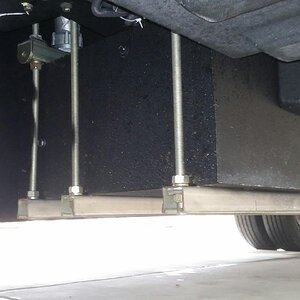Neal
Administrator
- Joined
- Jul 27, 2019
- Messages
- 13,871
- Location
- Midlothian, VA
- RV Year
- 2017
- RV Make
- Newmar
- RV Model
- Ventana 4037
- RV Length
- 40' 10"
- Chassis
- Freightliner XCR
- Engine
- Cummins 400 HP
- TOW/TOAD
- 2017 Chevy Colorado
- Fulltimer
- No
Fulltiming is probably in my future. Right now I'm "most timing". I like having my house in VA but I'm fortunate to have family that can look after it so I can enjoy months away at a time. I'd love to learn what a potential fulltimer needs to know. How to establish residency and where. Pros and Cons. And how to sustain the fulltiming lifestyle to avoid burnout or other potential downsides to the lifestyle, which I'd love to hear about as well.












